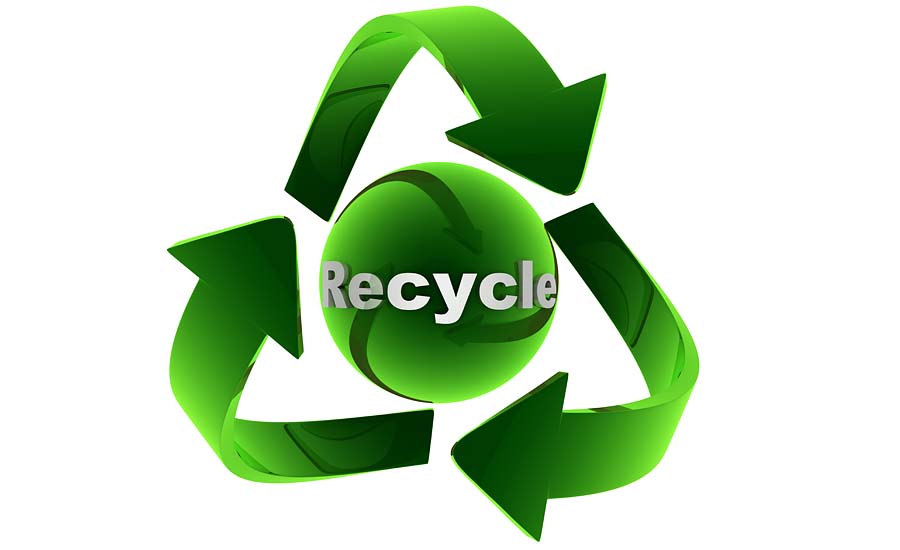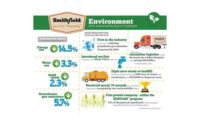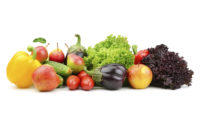Smithfield Foods, Inc., Smithfield, Va., released its “2018 Sustainability Report,” highlighting key milestones and ongoing efforts to feed the world’s growing population in a responsible way. Smithfield’s robust sustainability program drives all aspects of its business, creating value in animal care, environment, food safety and quality, helping communities and people.
“Our people work hard every day to maintain our position as a leader in sustainability, ensuring that we are fulfilling our mission to produce good food the right way. It is extremely gratifying to lead a team that is so passionate about meeting this responsibility,” says Kenneth Sullivan, president and CEO. “Sustainability is part of our culture. We have seen first-hand how investing in sustainability by setting bold goals and hard targets—and achieving them—is a win-win for our company and our stakeholders, including our animals, employees, neighbors and planet.”
As part of Smithfield’s ongoing commitment to transparency, the company also launched an interactive tool that brings to life each stage of its supply chain—from farm to facility to fork—to show where its food comes from and how it gets to consumers’ tables. This virtual tour includes videos and case studies on sustainability initiatives.
“We take a comprehensive approach to sustainability throughout our entire supply chain,” says Stewart Leeth, vice president of regulatory affairs and chief sustainability officer. “We are always innovating and looking for new opportunities to push beyond the status quo. Our groundbreaking efforts are making a real difference in the lives of our animals, employees, suppliers, customers and consumers, and we will continue to take bold steps to deliver on our promise to produce good food in a responsible way.”
Smithfield’s report highlights performance metrics, accomplishments, case studies and progress toward a number of sustainability goals and targets, including:
Animal care:
- Maintaining group housing for all pregnant sows on company-owned farms, a goal achieved in 2017;
- Advancing innovative vaccine research through the company’s laboratory on the Raleigh, N.C., campus of North Carolina State University College of Veterinary Medicine to develop better strategies for animal disease prevention;
Environment:
- Exceeding the company’s target to source sustainable grain with 80% of grain purchases originating from farms where efficient fertilizer and soil health practices were implemented;
- Expanding the company’s efforts to reduce greenhouse (GHG) emissions with a 10-year plan to convert hog manure into clean, renewable energy at hog farms in North Carolina, Missouri, Utah and Virginia;
- Achieving an 8.7% reduction in solid waste (normalized) sent to landfills across the company’s U.S. operations, reducing its environmental impact while simultaneously growing and increasing food production;
- Certifying 12 U.S. facilities to the company’s zero-waste-to-landfill standard;
- Establishing a new goal to reduce the company’s solid waste to landfill by 75% and achieve zero-waste-to-landfill certification at 75% of its U.S. facilities by 2025;
Food safety and quality:
- Investing approximately $130 million on capital projects company-wide to advance industry-leading food safety and quality standards;
Helping communities:
- Donating nearly $30 million in cash, product and in-kind contributions during 2018, including donations to food banks;
People:
- Completing the global implementation of the company’s injury prevention system for employee safety, enhancing its efforts to continuously improve performance beyond industry averages; and
- Exceeding the company’s inaugural diversity goal by 30% for its U.S. internship program.





